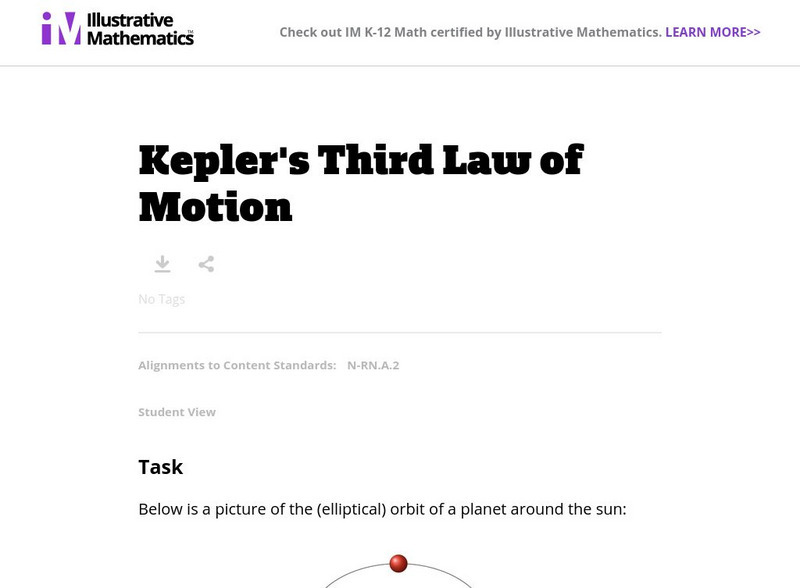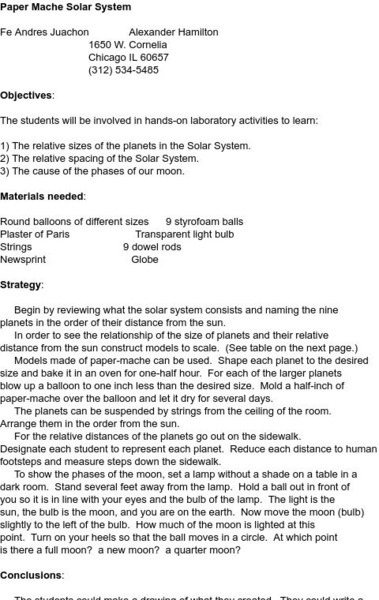Hi, what do you want to do?
Curated OER
Planets Curriculum
Learners complete an in-depth study of the known planets in the solar system. As a class, students identify the planets that are known in the universe, in the night sky. They explain the differences between planets and stars and the...
Laboratory for Atmospheric and Space Physics
The Planets and Scale
Scholars gain an insight into the relative size of planets and distance between inner and outer planets with the help of informational text, a data table, and a series of four questions.
Curated OER
Introduction To Orbital Mechanics
Students use NASA drawings to build a model satellite for a specific mission. They design a set of drawings for their satellite showing its subsystems as well.
Curated OER
Scientific Inquiry: Periodic Motion
Students construct their own pendulum. In this physics lesson, students design an experiment to find the factors affecting its period. They formulate a conclusion based on experimental data.
Curated OER
Exploring the Celestial Neighborhood
Ninth graders study the origin and organization of the solar system. They investigate the Earth's place in the system and how planetary motions explain natural phenomena observable from Earth.
Curated OER
Constellations
Middle schoolers explore the major constellations. After reviewing the Earth's basic motions and their significance, students discuss the moon's orbit and revolutions. Using a Digitarium Alpha portable planetarium projector, they...
Curated OER
Planets Curriculum
Students investigate the planets in our solar system. They conduct research using a variety of resources in order for students to make cognitive connections with the demonstrations made by the teacher. Students discover how to recognize...
Curated OER
Momentum
Learners learn the concepts of momentum and its conservation, using the recoil of a cannon as an example. They examine how momentum is a vector, allowing its conservation to be applied to problems in 2 and 3 dimensions.
Curated OER
MEASURING THE GRAVITATIONAL CONSTANT, G
Students study gravitational force an. In this gravitational force lesson students observe a demonstration.
Illustrative Mathematics
Illustrative Mathematics: N rn.a.2: Kepler's Third Law of Motion
The purpose of this task is to solve some expressions requiring fractional exponents in the modeling context of planetary motion. Aligns with N-RN.A.2.
NASA
Nasa: Kepler: A Search for Habitable Planets: Transit Tracks
Classroom lesson for teaching astronomy uses PowerPoint presentations and illustrations of Kepler's light curves used to discover planets.
Science and Mathematics Initiative for Learning Enhancement (SMILE)
Smile: Paper Mache Solar System
This site from the Illinois Institute of Technology provides a set of directions for the creation of a solar system model out of paper mache. Includes orbital distances and planet diameters for the nine planets. Great idea for a student...
















